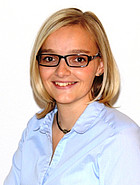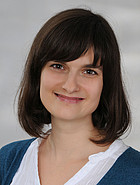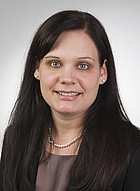Academic Year 2013/14
Efficiency of Austrian publicly DRG-financed hospitals: an empirical study employing DEA by taking the effects of heterogeneous technologies into consideration


Authors: Christina Gütlbauer, BSc MSc and Katrin Gütlbauer, BSc MSc Study Program: Business Administration |
Abstract: Austria is marked by a high-quality health system. Compared to other European countries, expenditures on inpatient care are relatively high. To meet the expectations of comprehensive health care with high quality under increasing cost pressure and ageing population, it is necessary to exploit any available efficiency potential. The aim of the present work is to assess the efficiency of all public and private non-profit acute care hospitals financed through provincial health funds, for the time period 2009 to 2011. To evaluate the efficiency, we use Data Envelopment Analysis (DEA), a non-parametric approach that is based on linear programming. Starting with a theoretical introduction and a review of empirical contributions in this field of research, the strengths and weaknesses of DEA are presented. Additionally, the advantages of using DEA to evaluate the efficiency of hospitals are summarized. Subsequently, as a result of the empirical study, improvement potentials of inefficient hospitals are computed. In particular, improvement potentials provide information about the amount a hospital can reduce its inputs for a given level of outputs. Additionally, we aim to find out whether hospitals providing services at two different care levels – standard and extended care level – perform under a uniform technology or systematically different technologies. Furthermore, efficiency changes over the three year period are analysed and possible explanations for existing efficiency differences among hospitals are provided. Finally, a cluster of the most productive hospitals that can serve as a benchmark for hospitals showing a higher potential for improvement is built. |
| Supervisor of the Master's Thesis: ao. Univ.-Prof. Dr. Margit Sommersguter-Reichmann, Department of Finance |

Author: Patrick Kropf, Bakk. MSc Study Program: Business Administration |
Abstract: The intention of this work is to analyse procedures and mechanisms for the assignment of kidney transplants to patients. Scientific research within the matching theory is at the center of these considerations. In this context some key aspects and methods of the matching theory are presented and used as the basis for being able to simplify the allocation of kidney transplants for the reader. At first we refer to the marriage problem wich is regarded the simplest model of the relevant scientific literature and should provide a basic understanding of the matching theory. Furthermore the college admissions model as well as the house allocation problem are presented before moving on to theoretical procedures for the distribution of kidney transplants. In addition methods for selecting recipients of an organ within the Eurotransplant International Foundation are demonstrated in order to provide a practical reference to Austria. The existing strengths and weaknesses of the organ exchange organization Eurotransplant are analyzed by the author and linked to theoretical models. The analyses and ideas for improvement are based on the top trading cycles and chains algorithm. Important factors that are used within the system of Eurotransplant and which are essential for the selection decision are taken into account in order to be able to design the distribution of kidney transplants in a just and fair way. At this point, missing factors of scientific research – within the matching theory – are complemented and a new alternative in line with a mechanism for the allocation of kidney transplants is determined wich on the one hand offers economically efficient outputs and on the other hand incorporates aspects such as equality and fairness to gain objectively better results. |
| Supervisor of the Master's Thesis: ao. Univ.-Prof. Dr. Christian Klamler, Department of Public Economics |

Author: Mag. Dr. Peter Kraker, BSc Study Program: Business Administration |
Abstract: In science, information overload is not a contemporary issue. At the beginning of a scientific study, it is therefore usually quite cumbersome to get an overview of a research field. In this thesis, I aim to address this problem of classic literature search with visualizations based on scholarly communication on the web. Knowledge domain visualizations are usually based on citations. Co-citation is an established measure of subject similarity and can thus be used to structure a field. Due to the publication lag, however, the appearance of citations is considerably delayed. For this thesis, I propose to employ readership statistics instead of citations to calculate subject similarities. Readership statistics have a distinct advantage over citations: they are available shortly after the paper has been published. In this thesis, I present work on an interactive visualization of research fields based on readership statistics from the online reference management system Mendeley. As a use case I have chosen educational technology, because it represents a field that is multidisciplinary and highly dynamic in nature. The visualization created from co-readership patterns contains 91 papers which are attributed to 13 areas. The visualization is fully automated with the exception of choosing the number of publications to include and correcting some of the names from the naming algorithm. In comparison to citation analyses, the proposed visualization is more diverse. Furthermore, the visualization is a very recent representation of the field: 80% of the publications included were published in the last 10 years. Being based on the readers, however, their characteristics may introduce biases to the visualization. Knowledge domain visualizations based on readership statistics therefore present a timely alternative to citation-based overviews, but it is important that the characteristics of the underlying sample are made transparent. |
| Supervisor of the Doctoral Thesis: ao. Univ.-Prof. Dr. Christian Schlögl, Department of Information Science and Information Systems |

Author: Mag. Jakob Perktold, BSc BSc MSc Study Program: Business Administration |
Abstract: Long-lasting and efficient trade relations depend on effective communications with supply chain partners, usually through EDI systems. The literature provides little evidence on benefits of using EDI systems despite substantial research onto antecedents, consequences, and implementation. Studies report both positive and negative effects of EDI use in B2B trading relationships. These contrasting findings may be due to different terminology, methodology, research designs, and approaches. Inconclusive theoretical findings do not support practical adoption of EDI systems. This master thesis aims to apply an established theoretical model to test reported results for the Austrian industry. This replication will also examine scientific findings. A sample of 157 Austrian FMCG-Suppliers responded to an online-questionnaire. Hypotheses were tested by correlation and regression analyses using SPSS-software. Austrian findings suggest support for similar hypotheses as the original study: Frequent communication at operational level increases partner knowledge significantly. The same tendency seems to exist for top-management level. Furthermore, frequent communication at top-management level positively influences frequency of communication on operational level. For partner knowledge similar results were identified: More information gained at top-management level, seems to correlate with partner knowledge at operational level. Some limitations of the model could not be resolved with regards of content: The assumption of a direct connection between communication frequency, partner knowledge and interorganizational bond is especially questionable. Consequently, these problems might be addressed through further testing and modification of the model. |
| Supervisor of the Master's Thesis: Univ.-Prof. Dr. Thomas Foscht, Department of Marketing |

Author: Anna Ressi, Bakk. B.A. (Econ.) MSc Study Program: Business Administration |
Abstract: This thesis aims at revealing governance structures a firm can use to strategically influence supply chain members and/or competitors in a beneficial way. First of all, I show how firms can use the organization of their sourcing process to influence the intensity of competition in a beneficial way. Furthermore, governance structures that at first sight seem to result in self-sabotage, for example in terms of high production costs or reduced flexibility through pre-commitment, eventually prove to be beneficial. Deliberately conveyed weakness either leads to less aggressive behavior in the final goods market or to more preferable input terms on the part of the supplier. Last but not least, it will be examined whether governance structures which imply being a market leader or structures which imply being a market follower promise the highest profits in a distribution channel. However, the relative benefit of a market leader- and followership is often influenced by the degree of product differentiation. In this context, many papers in the distribution channel management literature incorporate demand functions with imperfectly substitutable products formulated ad-hoc, which generate misleading results in terms of comparative statics. That is why I select a few papers, replace the misleading with the correct and microeconomically substantiated demand function and recalculate the regarding models. This leads to the conclusion that the papers’ basic propositions remain the same. However, in the original models, differentiating equilibrium profits with respect to the parameter of product substitutability leads to the nonsensical result that firms benefit from higher levels of competition. In contrast, the recalculated models indicate the reverse and thus the more empirically founded result. For this reason, the differentiation parameter in the original models should be more reasonably interpreted as being a collusion parameter. |
| Supervisor of the Master's Thesis: Univ.-Prof. Dr. Michael Kopel, Department of Organization and Economics of Institutions |
Employer Branding and its Influence on Employer Attractiveness using the Example of the IT-Sector in Austria

Author: Sabrina Weilbuchner, BSc MSc Study Program: Business Administration |
Abstract: In 1997, McKinsey identified a shortage of skilled workers. In the spirit of their term "war for talent", companies have to compete and establish themselves on the labour market, in order to recruit more potential workers. Because of demographic change, aging and the small numbers of skilled potential employees, it has become difficult for companies to acquire new staff. Well-trained employees are a valuable and increasingly rare resource for companies. Particularly, the IT-sector is affected by the skills shortage, because of the increasing demand of IT-professionals and the short supply of graduates from technical universities. To address the problem of skill shortage in the Austrian IT-sector, a technology company has been chosen as an example. By implementing the Employer Branding concept, this company wants to differentiate itself from competitors and attract more potential workers. Constructed on the theoretical construct of Backhaus and Tikoo (2004), an online survey at the Graz University of Technology, the FH´s Joanneum Kapfenberg and Hagenberg and the HTL's Kaindorf and Pinkafeld was performed. A total of 3292 students and pupils were interviewed. The results show that potential employees apply for jobs at companies, with good working environment, flexible working hours, career opportunities and autonomous work. To search for information about companies and/or jobs, most participants use company’s websites and job markets, such as karriere.at. The steady development of communication tools and their effect on Employer Branding should be the center of further study. |
| Supervisor of the Master's Thesis: Univ.-Prof. Dr. Renate Ortlieb, Department of Human Resources Management |
Development of a Mobility Concept for the Tourist Region Ausseerland. Algorithms and Computer-based Modeling.


Authors: Bernhard Geißler, BSc BSc MSc and Christiane Resch, Bakk. MSc Study Program: Business Administration |
Abstract: Against the background of strengthening tourism and preserving destination quality in the tourist region Ausseerland a flexible, demand driven mobility system shall be implemented. For this reason this master thesis deals with developing a dynamic Dial-a-Ride problem with a heterogeneous vehicle fleet and demand-based stops without a predetermined schedule. Customer's individual needs shall be taken into account equally as the efficient handling of the transportation volume. Transport services take place only when a real need is reported by a passenger. A central planning unit receives all orders and decides the allocation of the requests to the vehicles with trying to bundle several requests. The first part of this thesis focuses on developing an insertion heuristic with which the requests are allocated to the vehicles. The objective is to minimize the operating costs as well as reducing user inconvenience. First the Dial-a -Ride problem in general is discussed and an overview of the existing literature is given. Following the initial situation in the Ausseerland is discussed on which the insertion heuristic is developed. A further major part of this work is represented through the implementation of the concept into an application prototype. On the one hand it shall be illustrated how the application of the concept works in reality, on the other it shall contain a simulation environment for the scenarios. First, the considerations and requirements for the application with respect to construction, design, data storage and communication are discussed. Following the structure of the database and the handling of spatial data are presented. The results of the simulation are analyzed in the final part of this thesis. For this purpose a variety of scenarios is developed. The data used for these scenarios come from a previously conducted data collection as well as from generated random numbers. The results of the simulation are analyzed in terms of the effects of different parameters. |
| Supervisor of the Master's Thesis: Univ.-Prof. Dr. Marc Reimann, Department of Production and Operations Management |


Authors: Christoph De Marinis, Bakk. BA MA and Victoria Zotter, BA MA Study Program: Sociology |
Abstract: Austria has to face the challenges of persistent immigration and social integration of people with different cultural and linguistic backgrounds. The increasing share of children with migrant background creates a series of challenges for the Austrian education system. In our thesis this problem was investigated in three steps: In the first step, we observed the activities of a project which tries to promote intercultural learning in schools by means of workshops based on experiential education-methods. Subsequent to the project week we spoke with teachers about everyday school life with cultural and linguistic diversity and their solution strategies. Children with migrant background have to cope with the complex challenges of social integration into the society and growing up at the same time. Their family values are at times contradistinctive to the values of the majority society. For teachers this becomes visible in cultural conflicts in schools. Linguistic competencies are playing a key role in everyday school life, the value of the mother tongue has been seen different though. The outcomes of these interviews in the schools have been the starting point for the discussions with experts from migration organisations and integration politics. The Austrian integration politics put great expectations in specific assistance to linguistic competencies in German, but the education system as a whole has also to learn how to better deal with diversity. In this regard especially intensive work with parents is seen as very important. The main problem nevertheless seems to be the social and ethnic segregation which reproduces itself through the school attendance constrictions. For pupils with migrant background out of the lower social class this situation becomes a disadvantage. |
| Supervisor of the Master's Thesis: ao. Univ.-Prof. Dr. Franz Höllinger, Department of Sociology |

Author: Mag. Dr. Rafael Yann Schögler, Bakk. MA Study Program: Sociology |
Abstract: Since 1994, the European Union’s (EU) multiannual research programmes contain dedicated thematic social sciences and humanities (SSH) priorities. This thesis shows how the scope, means for funding and the policy instruments used to fund SSH research in these programmes have broadened and developed hand in hand with the changing function of research policy in the EU. The role of different actors – the institutions of the EU, stakeholders and the wider public – in priority setting of EU research funding are studied. EU research policy has evolved from being primarily a means to support economic policies to constituting a policy in its own right. The conceptions used to investigate this change and the roles of different actors are based on: first, an analytical differentiation between elements of research policy with the aim of supporting other policies and elements of research policy aiming at the institutions of research per se. Second are conceptions of the actors participating that are connected with notions of civil society found in theories of deliberative democracy, and third are ideas relating to the sociology of knowledge such as socially robust knowledge and the social contextualization of knowledge-making to interpret targeted research programmes in the light of knowledge-making. The empirical findings and observations of this thesis suggest, first, that research policy remains dominated by other aims. Second, the discourse of the EU institutions proclaiming the need to include stakeholders in decisions that affect them is particularly emphasized in research policy documents. Third, the practices of research policy-making on different levels only include stakeholders up to a certain degree, while SSH research programmes remain closely tied to the introduction of new policy dimensions on the EU level. Thus, the malleability of research targets in specific calls for proposals remains restricted to the boundaries set by the overarching policy dimension. |
| Supervisor of the Doctoral Thesis: ao. Univ.-Prof. Dr. Christian Fleck, Department of Sociology |
Transcultural Competence - a topic of nursing care? Sociological reflections on the concept of 'transcultural nursing'

Author: Anja Waxenegger, Bakk. MA Study Program: Sociology |
Abstract: The interest in issues relating to migration and culture has increased in recent decades. Against this background there is particular attention paid to the relationship between migration and health. It can be noted that the impact of migration concerning health is quite controversial. Despite there is some dissent on this issue; experts would basically agree that immigrated people are exposed to greater health risks. The current state of research also suggests that – compared to the majority society – migrants have got less access to the health system and their aged population is therefore more likely to be affected by health and care issues at an earlier age. Language problems and different cultural perceptions often lead to conflicts in and refusal of medical care and nursing. Based on these results, researchers such as political stakeholders claim for a thorough training on transcultural competence for employees in health and care field. This thesis deals with transcultural competence in the context of professional care from a sociological point of view. Based on selected sociological approaches, Leininger’s, as well as Domenig’s concept of transcultural nursing, is evaluated. Whereas Leininger’s concept has to be classified as highly deficient, Domenig’s concept – even though minor remarks for improvement have been stated – can be evaluated as quite positive. Although Domenig’s concept is seen as positive in theory, at this point it still remains uncertain, whether a care concept that is based on the ambiguous term of culture is appropriate to avoid culturalisation and to encourage individualised care in practice. |
| Supervisor of the Master's Thesis: ao. Univ.-Prof. Dr. Katharina Scherke, Department of Sociology |

Author: Dr. Jürgen Fleiß, Bakk. MA Study Program: Business Administration |
Abstract: Which conditions foster or hinder cooperation is a central question in the social sciences and economics. Important for answering this question are the theories of action used. Originally, exclusively self-interested actors were assumed. In recent decades actor models assuming social preferences, who take into account the consequences their actions have for others have been developed. In an introductory chapter the development and importance of social preferences will be discussed. Then the results of three studies based on laboratory experiments will be presented. Each study aims to shed light on different aspects of social preferences. Study 1 is concerned with cooperation in a public good game and studies the effect of centralized decision power on cooperation as well as the acceptance and possible misuse of power. Results show that centralized decision power leads to an increase in cooperation and is preferred over voluntary cooperation. In study 2 the acceptance of equality norms and meritocratic norms in Ultimatum Games is studied. It can be shown that meritocratic norms are accepted by both those who profit from them and also those whose payoff is lower than under an equality norm. In addition, the results of individual adherence to different norms on the aggregate payoff distributions will be studied. In study 3, reciprocity is first defined as a change in an actor’s distributional preferences as a reaction to information about the interaction partner. Positive and negative reciprocity of actors will then be measured in a laboratory experiment. It will be shown that the strength of a reciprocal reaction is an individual difference and that it varies systematically for individualistic and prosocial actors. |
| Supervisor of the Doctoral Thesis: Univ.-Prof. Dr. Ulrike Leopold-Wildburger, Department of Statistics and Operations Research |

Author: Michaela Kainz, Bakk. MSc Study Program: Business Administration |
Abstract: Common goal of various CG movements is the recovery of investor confidence, especially after numerous crises and corporate scandals. This raises the question whether the different CG regulations have an impact on the company's financial performance. The aim of this master thesis is the discussion of the relationship between CG and firm performance primarily on the basis of those empirical studies that consider the performance of the company depending on the size and composition of the board of directors as well as the shareholdings of management. The main result of this discussion is that a restriction of the board size or a limitation of management representation on the board of directors is not necessarily beneficial for all companies. Furthermore, CEO duality is not uniformly dysfunctional and the managerial ownership does not automatically lead to an alignment of interests of management and shareholders. One reason for the inconsistent findings is that companies' individual circumstances, environmental conditions and characteristics of the actors involved must be taken into account. Within the own empirical analysis, using multiple linear regression and appropriate control variables, it is examined how the board size, the board independence and the shareholdings of insiders affect the financial performance of 219 UK listed companies between 2005 and 2011. The results emphasize the inapplicability of a uniform approach to CG. It can be concluded that CG on soft law is an effective alternative to a rules-based system. Due to the comply-or-explain approach to CG companies are granted a degree of flexibility, whereby good CG can be considered as a way to increase the company's performance rather than just a compliance exercise. |
| Supervisor of the Master's Thesis: o. Univ.-Prof. Dr. Dr.h.c. Alfred Wagenhofer, Department of Accounting and Control |

Author: Lukas Lausegger, Bakk. MSc Study Program: Business Administration |
Abstract: This study investigates the effectiveness of the two-tier German financial reporting enforcement mechanism. Following numerous accounting scandals around the turn of the millennium, the German government passed the Bilanzkontrollgesetz (Accounting Enforcement Act) at the end of 2004. For the first time in Germany, this law established a procedure to disclose error findings in the published financial reports of firms listed on the regulated market segment. On the first level, a private body, the Financial Reporting Enforcement Panel (FREP) conducts investigations of audited financial statements of firms listed on a regulated market segment on a German stock exchange. On a second level, the German securities regulator BaFin intervenes if a company is unwilling to cooperate with the FREP and enforces disclosure of error findings. In an empirical study the effectiveness of the German enforcement system in finding and sanctioning companies with faulty financial reports is investigated by t-tests and multivariate regression analyses. In contrast to previous empirical studies, this work focuses on the measurement of the affected companies’ reactions to error findings. The empirical results indicate that companies with error findings indeed exhibit a higher degree of earnings management than firms with none. Regarding the firms’ characteristics, the results indicate that smaller, less profitable firms, companies that are more in debt or firms with a Non Big Four auditor are more susceptible to accounting errors. Furthermore, the empirical results also provide some support for the notion that the disclosure of error findings leads to an increase in the quality of the financial reports of the companies affected. |
| Supervisor of the Master's Thesis, Department of Accounting and Reporting |

Author: Johannes Ruhs, Bakk. MSc Study Program: Business Administration |
Abstract: In the years of economic crisis from 2008 to 2011 enterprises accumulated an enormous amount of tax loss carry-forwards. According to the objective of international financial reporting, to give a true and fair view of firm’s businesses, deferred tax accruals from carry-forward losses have to be capitalized if the recognition criteria are accomplished. Whether to do a recognition, a non-recognition or an impairment of deferred tax accruals from carry-forward losses primarily depends on management’s judgement of future business. Especially in economically difficult times there are incentives to do profit increasing earnings management with deferred tax accruals from carry-forward losses. Source of information for empirical analysis consists of manually collected data out of IFRS annual consolidated statements of ATX prime market and DAX-30 enterprises, as well as data out of US-GAAP annual consolidated statements of Dow Jones Industrial enterprises. On the basis of the 3 samples, which include 88 enterprises and 1,164 firm-years, empirical analysis try to determine if earnings were actually managed with deferred tax accruals from carry-forward losses during the economic crisis. The results revealed that particularly in period 2008 all 3 samples show earnings management activities due to failure of value adjustment. In 2009, at the peak of economic crisis, only in the sample of Dow Jones Industrial enterprises evidence of earnings management exists. Moreover within the Austrian sample, it seems that the deferred tax accruals from carry-forward losses were also valued too high during the economic crisis, considering the massive profit shrinkage they got. [cf. for the theoretical background: Küting/Zwirner (2003), S. 311-312, Petermann/Schanz (2013), S. 78-79, Wagenhofer (2009), S. 128.] |
| Supervisor of the Master's Thesis: Univ.-Prof. Dr. Rainer Niemann, Department of Accounting and Taxation |

Author: Gernot Gassmann, Bakk. MSc Study Program: Business Administration |
Abstract: To guarantee that there is a higher international comparability of financial reports prepared under international reporting standards the consistent application and enforcement of these standards is a necessary condition. This thesis emphasises on institutions which review this enforce the consistent application. At first, a conceptual justification of why such institutions are really necessary is given and furthermore it will be specified how they are contributing to a better information of investors on capital markets. Afterwards the legal development concerning Enforcement within the European Union will be shown. The European system of Enforcement delegates the task to each member state, which have to name or establish an institution that reviews certain financial information and tries to prevent, or if already existent identify and correct errors within those reports. The Union is just providing the basic conditions and offering coordinative mechanisms. The third and by far biggest part of this thesis is a comparative description of the three different national models of such institutions in Great Britain, France and Germany. It is shown how these institutions are working, how they review and which possible actions they are able to take to enforce their findings. Out of this descriptions results a table which in summary compares the most important criteria of national institutions and areas of where they are equal or differ from each other. It is also shown which empirical results the work of such institutions provides and how those results and gathered information are used on a national and international level. At last there is also a part which describes the situation in Austria, where an institution for Enforcement was recently legally consolidated in 2012 and established in 2013 to show how Enforcement will be done in Austria and on which of the above described model the Austrian standard setter relied most in his work. |
| Supervisor of the Master's Thesis: Univ.-Prof. Dr. Ralf Ewert, Department of Accounting and Auditing |
Biased and Induced Technical Change and its Impacts on the Working Class. An Economic and Sociological Perspective.

Author: Florian Brugger, BA (Econ.) M.A. (Econ.) Study Program: Economics |
Abstract: This thesis offers insight into the economic discussion of induced and directed technical progress in different ages of economic thinking. It also explains in what ways the directed and induced technical progress affects the situation of workers. As a complement (to the economical approach), a sociological explanation of economic development and the direction of technical progress is given. In classical economics, it was assumed that induced directed progress is usually labour-saving and worsens the situation of workers. Early neoclassical contributions were aimed at adapting classical concepts of induced directed progress. However, it became evident that an undifferentiated transfer of classical concepts was impossible. The late neoclassical debate was focused on developing a model of induced directed progress compatible with neoclassical assumptions as well as explaining the empirical finding of constant distribution and profit rate. Thus, it was shown that two different kinds of neoclassical approaches coexist: unisectoral and multisectoral. Furthermore, this thesis addresses the current discussion of ‘skill biased’ induced directed progress triggered by new empirical findings. In the last section of the thesis, an alternative sociological explanatory approach for economic development and the direction of technical progress is presented. The thesis is structured as follows: The first part discusses classical contributions, the second part offers an overview of the neoclassical debate, the third part addresses the current discussion and the last two parts are dedicated to the sociological perspective. |
| Supervisor of the Master's Thesis: ao. Univ.-Prof. Dr. Christian Gehrke, Department of Economics |

Author: Angelika Sauer, B.A. (Econ.) M.A. (Econ.) Study Program: Economics |
Abstract: In 2009 the global financial and economic crises resulted in one of the most severe recession of the Second Austrian Republic. The general government deficit according to the Maastricht definition reached in 2009 the value of € 11,3 billions (=4,1% of the GDP). The same holds for the federal and provincial (Länder) levels, where the budget deficit according to the Maastricht definition amounted to around 0,7% of the total GDP in 2009. Against this background, the first part of the paper provides a closer insight into the institutional framework at national-regional level and at European level. Therefore, the paper discusses at national-regional level the Austrian system of financial equalisation, the Austrian tax reform of 2009 and the structure of the federal budget. At European level, the paper takes a glimpse at the Stability and Growth Pact and the Fiscal Pact. Keeping this institutional framework in mind, the question arises to which amount the budgetary policy determines the income and the expenditure of the regional budget. Therefore, the paper concentrates on the budget situation of Styria in the time frame between 2008 and 2014. Based on the analyses of the budget estimations and the statement of accounts for the years from 2008 to 2014, the main categories of income and of expenditure of the Styrian budget are identified. The paper additionally takes a closer look at the budgetary development before and after the Styrian federal elections in September 2010 and points out the major differences in the income and expenditure developments before and after the elections. Consequently, the paper’s aim is to outline the federal-specific income and expenditure scope of budgetary design options. |
| Supervisor of the Master's Thesis: Univ.-Prof. DDr. Michael Steiner, Department of Economics |
The economic consequences of climate change for the sectors manufacturing and trade in Austria. A qualitative and quantitative assessment

Author: Herwig Urban, BSc B.A. (Econ.) M.A. (Econ.) Study Program: Economics |
Abstract: This Thesis analyses the consequences of climate change for the sector “Manufacturing and Trade”, an important field of the Austrian National Adaptation Strategy. The productivity losses of workers due to changing working conditions are evaluated quantitatively. The Wet Bulb Globe Temperature-index, a heat strain index for workers combining information on temperature and relative humidity is used to calculate the productivity losses. The Human Capital Approach converts these productivity losses in monetary terms using the hourly wage of workers as costs of lost working hours. In order to calculate spillover and macroeconomic effects a Computable General Equilibrium Model is used. Using an extensive literature review focusing on national and international projects the following impact chains are analysed qualitatively: Stability of production processes, changes in cooling and heating demand, effects on the supply chain, changes of private consumption and damages to internal and external infrastructure. Quantifying the impacts of productivity loss due to climate change we find the following: In the mid-range climate scenario in the 2050s, GDP and welfare decrease by € 65 and € 39 million and the Austrian government budget by € 13.6 million. In the high-range climate scenario, GDP and welfare decrease by € 241 and € 169 million and government budget by € 53.9 million. The impacts on „Manufacturing and Trade“, investigated qualitatively in this Thesis, are extremely branch-specific, depending on demand and supply interlinkages from and to other vulnerable sectors, energy-intensities, production processes and changing consumer preferences. The approach used in this Thesis shows various uncertainties. Although further research is necessary, this Thesis clearly points out that it is important to consider certain effects. Furthermore, it is necessary to develop methods to quantify the effects that are only discussed qualitatively in this Thesis. |
| Supervisor of the Master's Thesis: ao. Univ.-Prof. Dr. Karl Steininger, Department of Economics |

Author: MMag. Dr. Barbara Preimel Study Program: Business Administration |
Abstract: This dissertation has attempted to answer the question as to the reasons which were decisive for the disappearance of Austrian commercial vehicle manufacturers. After the Second World War the following Austrian manufacturers were still leaders in the commercial vehicle market: Steyr-Daimler-Puch AG, Österreichische Saurerwerke Aktieng-esellschaft, Österreichische Automobilfabrik AG, Gräf & Stift AG, Automobilfabrik Perl AG, Fross-Büssing A. Komm.-Ges. After the Second World War Austria, as a neutral country, was in a very difficult situation as it was neither a member of COMECON nor the EEC and was therefore subject to export re-strictions. The situation was only to change in 1960, when Austria joined EFTA. Over the years, customers’ requirements with regard to commercial vehicle equipment have fundamentally changed. Manufacturers not only had to comply with customers’ wishes, how-ever, but also with legal requirements regarding dimensions, weights and pollutant emissions. European manufacturers relocate their production plants to low-wage countries to keep manufacturing costs low. They are also making increased efforts to gain a foothold in the Asian market, in order to satisfy demand there. The 2009 recession caused the whole automotive industry to go into a major decline. The crisis resulted in plant closures and manufacturers operating short-time working schemes. Superb technical achievements and high-quality vehicles alone are clearly not decisive for the continuation of a company. Making the right entrepreneurial decisions with regard to maximum profitability and timely positioning of the company in the appropriate markets, the development of an extensive sales and service network and also willingness to cooperate with other companies are also crucial success factors. |
| Supervisor of the Doctoral Thesis: Univ.-Prof. Dr. Dr.h.c. Stefan Karner, Department of Economic, Social and Business History |

Author: Mag. (FH) Carmen Dohr, MSc Study Program: Business Education and Development |
Abstract: Today’s society is subject to a rapid and constant change. Organisational changes, the increase of knowledge and the need for flexibility and innovation place new requirements on individual, collective and organisational learning. Driven by these changes, the ability to develop self-regulatory competence has become an increasingly important role in research and practice. Due to these changes the main aim of this master thesis is to illustrate the importance of self-regulated learning and to identify its role in the learning organisation. Self-regulated learning has become an important topic both in individual and organisational context. It considers the research question what are the possibilities and limitations of self-regulated learning in the context of learning organisations. Firstly, the master thesis provides a definition of the term learning organisation. It includes an explanation of the learning theories at the individual, group-related and organisational level. After that the learning levels by Argyris and Schön are described. The following chapter deals with the definition of self-regulated learning and a delimitation to related terms is given. As a result, selected frame models are presented and discussed in detail. Following this, the development of self-regulatory competence by Zimmerman is described. A specific focus on the similarities and differences between the frame models is subject of this chapter. The last chapter deals with self-regulated learning in the context of the learning organisation. Beyond that, opportunities and hurdles of self-regulation are discussed in order to derive recommendations. As a result, there are recommendations for the individual, for the leader and the learning organisation. |
| Supervisor of the Master's Thesis: Univ.-Prof. Dr. Michaela Stock, Department of Business Education and Development |
Use of ePortfolios in Business Education & Development Programs - A Contemplation of German-Speaking and US-American Departments

Author: Mag. Thomas Gößler, Bakk. Study Program: Business Education and Development |
Abstract: The aspect of reflecting and measuring learning progress as well as learning processes is awarded an increasing role in Higher Education of the present. By reflecting activities and processes self-regulation and promotion of learning processes is supported especially in University Education. For conducting and simplifying reflection – among other things – the instrument of portfolio-technique is applied at university level. In times of modernization and technologisation so-called e-portfolios are used in this context. This thesis deals with both, the basic idea of e-portfolio-use in Higher Education, as well as with the different forms of implementation and how they are put into practice. For this purpose in the consideration of this thesis, a clear restriction is made on the curricula of business education and development, as reflexive learning enjoys a high priority especially in the field of pedagogical and didactic education. (Self-)Reflection is a fundamental condition specifically for business education professionalism. In order to gain new insights on German-speaking and US-American departments of business education and development the author of this thesis conducted a survey with the main topic of e-portfolios. At the beginning of this thesis a theoretical basis for the subject e-portfolio is created to then analyze the individual departments through an inductive approach in the main part. Thereby the implementation of the e-portfolio at the Department of Business Education and Development at the University of Graz and the accompanying research are discussed in detail as well the analysis of the findings of the survey among the other departments in Austria, Germany, Switzerland and the USA. The thesis ends with a comparison as well as conclusions on the individual implementations. |
| Supervisor of the Diploma Thesis: Univ.-Prof. Dr. Michaela Stock, Department of Business Education and Development |